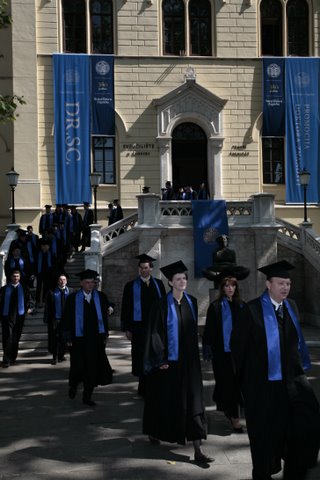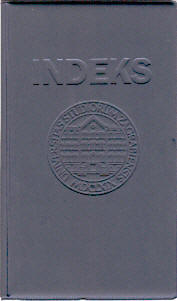ACADEMIC YEAR AND TEACHING PERIODS - SCOPE AND STRUCTURE OF STUDY PROGRAMMES – STUDENT PROGRESS ASSESSMENT
| ACADEMIC YEAR | October 1 to September 30 |
| WINTER SEMESTER |
Teaching period
October 1 to February 28/29
Winter examination period
(no classes) February 1 to February 28/29
Christmas holidays (no classes)
25 December - 8 January
|
| SUMMER SEMESTER |
Teaching period
|
IMPORTANT: The faculties and academies of the University of Zagreb operate within distinct academic calendars and therefore there might be differences (2-3 weeks) in the beginning/ending of a semester. For exact information please contact directly Faculty/Academy of the University you will visit.
National Holidays
| January 1 | New Year’s Day |
| January 6 | Three Kings Day |
| Easter and the day after | Easter Sunday and Monday |
| May 1 | Labour Day |
| 60 days after Easter | Corpus Christi |
| June 22 | Anti-Fascist Struggle Day |
| June 25 | Day of Croatia Statehood |
| August 5 | Victory and Homeland Thanksgiving Day |
| August 15 | Assumption of Mary |
| October 8 | Independence Day |
| November 1 | All Saint’s Day |
| December 25 and 26 | Christmas |
SCOPE AND STRUCTURE OF STUDY PROGRAMMES
University undergraduate programmes – first cycle (preddiplomski sveučilišni studij) normally take three years in which students are required to earn 180 ECTS credits. A minority of undergraduate university programmes in Croatia are offered as four-year programmes in which students are required to earn 240 ECTS credits. Upon completion students are awarded a diploma (svjedodžba) and the academic degree of University Bachelor (sveučilišni prvostupnik) with an indication of the field of study. Students graduating in technical sciences receive the academic degree of University Bachelor in Engineering (sveučilišni prvostupnik inženjer) with an indication of the field of study.
Students holding a first cycle university degree can apply for admission to university graduate programmes or vocational specialist graduate programmes, or enter the workforce.
Students holding a first cycle university degree can apply for admission to university graduate programmes or vocational specialist graduate programmes, or enter the workforce.
 University graduate programmes – second cycle (diplomski sveučilišni studij) normally take two years in which students are required to earn 120 ECTS credits. A minority of graduate programmes in Croatia are offered as one-year programmes in which students are required to earn 60 ECTS credits. The total number of credits earned in the first and second cycle programmes must be at least 300. Upon completion students are awarded a diploma and the academic degree of Master of (magistar struke) with an indication of the field of study. Students graduating in technical sciences receive the academic degree of Master in Engineering (magistar inženjer) with an indication of the field of study.
University graduate programmes – second cycle (diplomski sveučilišni studij) normally take two years in which students are required to earn 120 ECTS credits. A minority of graduate programmes in Croatia are offered as one-year programmes in which students are required to earn 60 ECTS credits. The total number of credits earned in the first and second cycle programmes must be at least 300. Upon completion students are awarded a diploma and the academic degree of Master of (magistar struke) with an indication of the field of study. Students graduating in technical sciences receive the academic degree of Master in Engineering (magistar inženjer) with an indication of the field of study.Students holding a second cycle university degree can continue their studies in university postgraduate programmes or enter the workforce.
Integrated undergraduate and graduate university programmes – first and second cycles (integrirani preddiplomski i diplomski sveučilišni studij) normally take five or six years in which students are required to earn 300 or 360 ECTS credits respectively.
Upon completion students are awarded a diploma and the academic degree of Master of (magistar struke) with an indication of the field of study. Upon completion of integrated first and second cycle programmes in medicine, dentistry and veterinary medicine students receive the academic degree of Doctor (doktor struke) with an indication of the field of study (e.g. Doctor of Medicine, etc.) Students with this degree can continue their studies in university postgraduate programmes or enter the workforce.
Upon completion students are awarded a diploma and the academic degree of Master of (magistar struke) with an indication of the field of study. Upon completion of integrated first and second cycle programmes in medicine, dentistry and veterinary medicine students receive the academic degree of Doctor (doktor struke) with an indication of the field of study (e.g. Doctor of Medicine, etc.) Students with this degree can continue their studies in university postgraduate programmes or enter the workforce.
University postgraduate programmes – third cycle (poslijediplomski sveučilišni studij) normally take three years. Upon completion students are awarded a diploma and the academic degree of Doctor of Philosophy (or Doctor scientarum), or Doctor of Fine Art (doktor znanosti or doktor umjetnosti), with an indication of the academic field or art form.
University specialist postgraduate programmes (poslijediplomski sveučilišni specijalistički studij) normally take one to two years. Upon completion students receive a diploma and the academic degree of University Specialist (sveučilišni specijalist) with an indication of the field of study.
ECTS - European Credit Transfer System
1 ECTS credit is equivalent of approx. 30 working hours. Credits are awarded only when the course has been completed and all required examinations have been successfully taken. 60 ECTS credits represent the workload of a year study, 30 ECTS credits a semester.
Student Transcript Book – “Indeks”


Upon enrolment students get their own student transcript book – in Croatian “indeks”. It contains basic information on courses taken, grades awarded and ECTS achieved.
It is useful to carry it during the last four weeks of the semester when professors with their signature certify attendance at the courses.
When the student passes the exam the professor will write down the grade and ECTS the student got and will sign it as well one more time.
It is useful to carry it during the last four weeks of the semester when professors with their signature certify attendance at the courses.
When the student passes the exam the professor will write down the grade and ECTS the student got and will sign it as well one more time.
Grading System
The Croatian national grading scale consists of five grades with numerical equivalents:
The Croatian national grading scale consists of five grades with numerical equivalents:
5 = excellent - izvrstan (highest grade)
4 = very good - vrlo dobar
3 = good - dobar
2 = sufficient - dovoljan (minimun pass grade)
1 = fail - nedovoljan (is not written in “indeks”)
4 = very good - vrlo dobar
3 = good - dobar
2 = sufficient - dovoljan (minimun pass grade)
1 = fail - nedovoljan (is not written in “indeks”)


